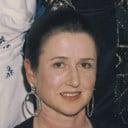Deaf find unfair hearings in court
Deaf people have had unfair trials through a lack of interpreters to tell them what is happening in court, an Association of the Deaf spokeswoman said yesterday.
Executive member Pat Dugdale said a judge decided if an interpreter was needed when a deaf or partially deaf person was on trial or giving evidence.
“But we are in a Catch 22 situation, if judges do call for interpreters we do not have them. There are only two full time working in New Zealand — one in the North Island and one in the South Island.”
She hoped an amendment to the Human Rights Commission Act would stop deaf people being sent to prison without a fair hearing.
Ms Dugdale’s call for more interpreters to help deaf people to communicate is backed by Phil Harper of Melbourne’s Deaf Services Network and his wife Carla Anderson. They are in New Zealand for a month conducting workshops for the deaf and people who live and work with the deaf.
Mr Harper said Victoria had about 5000 people who used sign language — about the same as New Zealand.
“But Victoria has 30 interpreters. Deaf people we have met in New Zealand say a lack of resources for the training and employment of interpreters is a major problem.”
Neil Cameron of the Justice Department said the courts had provisions for interpreters. “But we do not have interpreters on tap for the 60 odd courts in New Zealand.”
Photo caption: AUSTRALIAN deaf lecturers Carla Anderson and Phil Harper with their children Benn, left, and Aaron, 2, in Wellington yesterday.
- Deaf Organisations
- Interpreting
- TV/Media

















